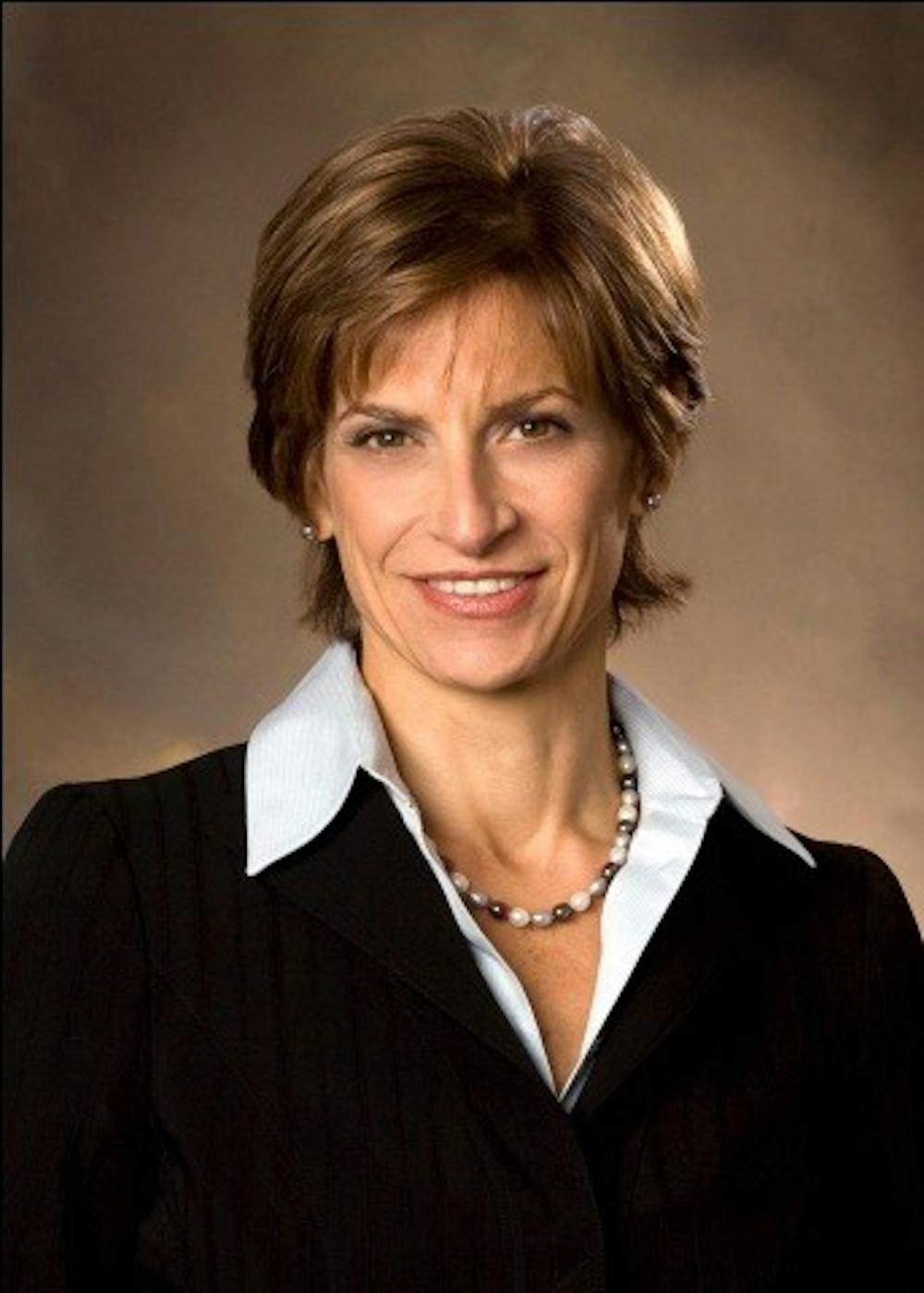Former University Rector Helen Dragas left the Board of Visitors this July after two consecutive four-year terms.
Dragas joined the board in 2008 — appointed by former Virginia Gov. Tim Kaine. Then in 2011, she became the first woman to hold the title of rector.
University Spokesperson Anthony de Bruyn said in an email statement that “the University wishes to thank Ms. Dragas for her eight years of service as a member of the Board of Visitors.”
Dragas was involved in several major changes and debates at the University during her tenure.
In 2013, Dragas voted against the scaleback of Access U.Va. — the University’s financial aid program dedicated to relieving the burden of debt from low-income students when they graduate.
“This action raises the cost of a U.Va. degree substantially for students from low-income families, hurting our diversity and coming at a time when we are already seem as elitist and unwelcoming,” Dragas said in a press release.
Dragas expressed similar concerns regarding higher tuition for in-state students in a July editorial in the Washington Post.
“Despite significant growth in state and federal funding, the board has voted to raise tuition for new students by 30 percent since 2013,” Dragas said in the article. “The University cut grant aid to the poorest Virginians...spent more than $100 million on financial aid to out-of-state students…
Thousands of Virginia students who apply to the University are rejected each year, which is a sign of decreasing public accessibility, Dragas added.
Law Prof. George Cohen said he disagrees with Dragas’s critique of the University’s lack of public affordability.
Cohen said in an email statement that he believes the University administration balances quality and affordability.
“The University has increased the size of its undergraduate class, which has increased access, [and it] has also made real efforts to attract and support more students from underprivileged backgrounds,” Cohen said. “But the University has also made important commitments to improve faculty salaries, which were frozen for several years and in many areas lag behind those of peer institutions.”
During her tenure on the board, Dragas also oversaw the University administration’s long-term strategic plan — one of the issues which she and University President Teresa Sullivan openly disagreed about in 2012.
In the same year, Sullivan was strongly pressed to resign from her position by the board. Dragas led the ousting.
The day following Sullivan’s resignation, Dragas said to University vice presidents and deans that a “concrete and achievable strategic plan to re-elevate the University to its highest potential” was needed.
Sullivan was reinstated within the same month, however, when faculty, students and community members rallied behind her.
Cohen said that Dragas’s reasons for ousting Sullivan were regarded by many as insufficient and vague.
“She characterized the ouster of President Sullivan as rooted in a ‘philosophical difference of opinion,’” Cohen said. “She emphasized that the University was facing a ‘rapidly changing and highly pressurized external environment’ that call ‘for a much faster pace of change in administrative structure, in governance, in financial resource development and in resource prioritization and allocation.’”
In her recent Washington Post editorial, Dragas also criticized the University administration’s spending.
“At our June meeting, administrators revealed their coffers include a $2.3 billion pot of reserves, surpluses and earnings,” Dragas said in the article. “This astounding sum could run the entire University Academic Division for a year and a half.”
Dragas said she believed the University should increase its dedication to Virginians and have more public accountability.
Current Board of Visitors Rector William Goodwin said in an email statement that the board constantly makes efforts to invest in the University community and remain publicly accessible.
“I have asked the University administration to provide details over the next few days regarding our work to date on this matter,” Goodwin said. “The University's strong financial position will enable the University to make these strategic investments while minimizing tuition increases so that U.Va. continues to provide its students with an affordable, accessible and world-class education.”
Cohen added that board members needed to invest a lot of time to learn how the University functions and maintain dialogues with different constituencies within the community.
Dragas said in a press release that she would continue focusing on stable housing and services for homeless children in the Hampton Roads area after leaving the board.







